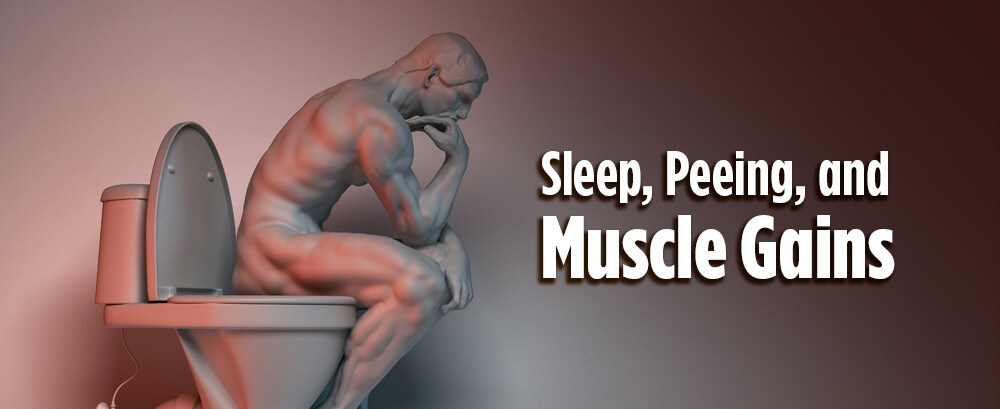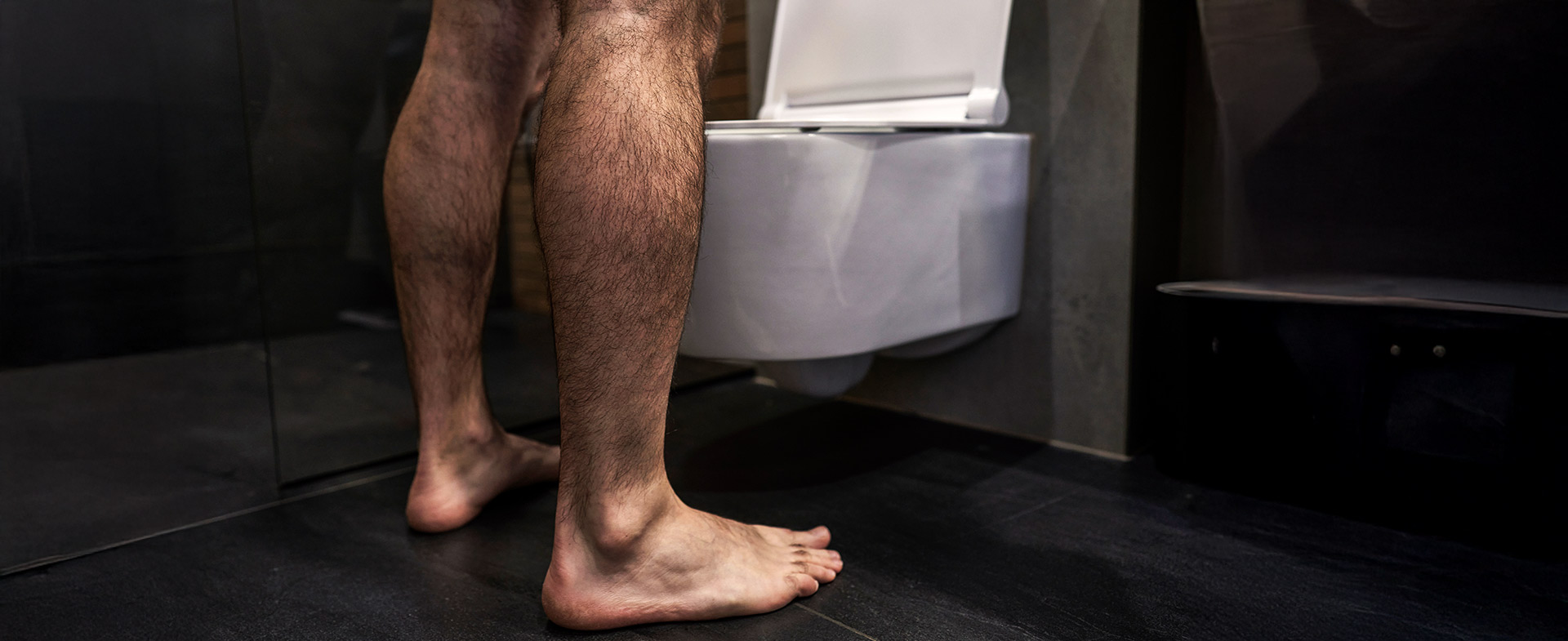
Sleep, Peeing, and Muscle Gains
Pre-bed protein accelerates recovery and hypertrophy. The problem? Middle-of-the-night bathroom trips. Here's the solution.
People ask us a lot of weird questions... mostly weird people. But when more than a few normal folks ask the same question, we pay attention. Recently, we've gotten some form of this question:
"Hey, this may sound strange, but I've been drinking a serving of Mag-10 every night before bed based on some of your articles. I thought this would cause me to wake up in the middle of the night to pee often, but it doesn't. Why?"
It's a good question, and the answer teaches us a lot. Let's dig in.
Why Drink Mag-10 Before Bed?
First, why are people consuming MAG-10 (Buy at Amazon) before they hit the sack? In a nutshell, when lifters and athletes adopt this practice, they recover and build muscle faster.
At least two studies on casein hydrolysate (i.e. highly structured peptides, one of the main ingredients of Mag-10) show that pre-sleep ingestion improves overnight muscle protein synthesis, aiding muscle recovery and boosting adaptation to hard training.
Casein hydrolysate is a highly specialized protein known as the most anabolic protein. Most use it post-workout or as part of a protein-pulsing strategy. But it's also one of the best protein sources to ingest before sleeping/fasting due to its anti-catabolic properties.

So Why Doesn't It Make Me Pee A Lot?
In oversimplified terms, your body is using Mag-10 and putting it to work, rather than just excreting it.
If you drink 16 to 18 ounces of plain water before bed, you'll probably need to wake up and urinate a few hours later. When you drink plain water, it's hypotonic (low in solutes), and your kidneys quickly filter it out as urine. With Mag-10, the combination of electrolytes, functional carbs, and protein shifts how and when the water is processed, reducing the immediate diuretic effect. Here's the breakdown:
- Electrolytes and Fluid Balance: Mag-10 contains several electrolytes. Electrolytes increase the tonicity of the solution, slowing water movement out of your bloodstream and into your bladder. This reduces the urgency to pee by keeping more fluid in your tissues and blood overnight. As a bonus, fewer nighttime bathroom trips also mean uninterrupted sleep, which boosts growth hormone release.
- Carbohydrates and Osmolality: The highly branched cyclic dextrin (HBCD) and isomaltulose are complex and slow-digesting carbs. These increase the solution's osmolality (concentration of particles) which delays gastric emptying and slows the rate at which water is absorbed and excreted. Instead of a rapid flood of water hitting your system (like with plain water), the carbs cause a more gradual hydration process, reducing the immediate burden on your kidneys.
- Peptides and Water Retention: The highly structured peptides (casein hydrolysate) are broken-down proteins. Protein digestion and absorption require water, and casein, in particular, is known for being slow digesting. This means some of the water you're drinking is being "held" in your digestive system or used for processing the peptides rather than being immediately sent to your bladder.
So, mystery solved.
